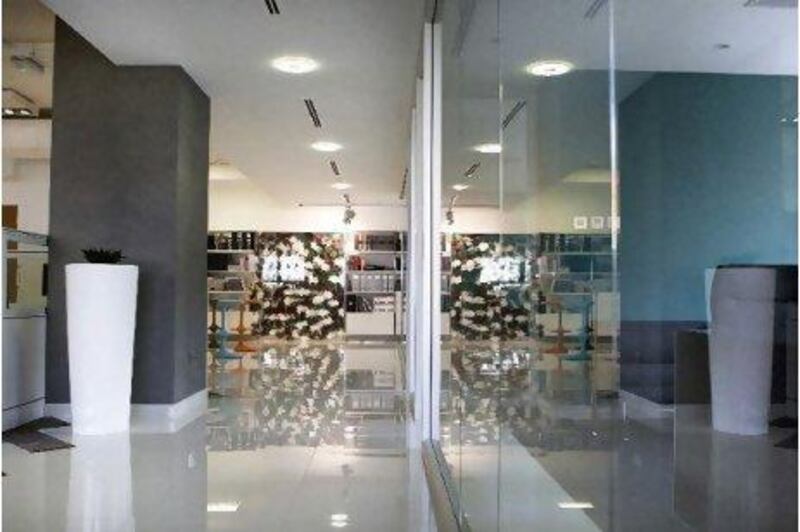ABU DHABI // When Muhammad Ali first walked into what was to become his office in downtown Abu Dhabi, he wondered if the job his boss had given him was impossible.
The Total Office, a workplace furniture supplier, was opening new offices in the capital. The company's goal was to showcase what an environmentally friendly office space could and should be, and to have it up and running quickly.
Looking at the dilapidated 300 square metre space 19 months ago, Mr Ali, the company's area manager for Abu Dhabi and Al Ain, was sceptical.
But within a couple of months, the third-floor space in an old tower block at the corner of Hamdan and Muroor streets had been transformed. And, in late September this year, the site became the first in Abu Dhabi to be certified by Leadership in Energy and Environmental Design (Leed).
Leed, developed by the US Green Building Council, is the world's most popular system of green building rating and one that also certifies commercial interiors based on their design, construction, layout and furnishings.
To achieve the certificate, the company had to invest in water-saving devices, better electrical appliances and lights. This reduced water consumption by 43 per cent and electricity used for lighting by 20 per cent.
Reducing the impact of lights by installing occupancy sensors, energy-efficient light-emitting diodes (LEDs) and better use of natural daylight was fairly easy to achieve. Tackling the amount of energy necessary to cool the office was a more difficult task due to "a number of issues outside of the control of The Total Office", said Khaled Bushnaq, the chief executive of Energy Management Services, the Dubai-based consultancy that guided the company's transformation.
Air conditioning is estimated to be responsible for up to 70 per cent of energy demand in buildings in the capital. As the office is located in an existing building, managed by a third party, much of its energy bill related to cooling is due to factors outside its own control, such as the building's insulation and type of chiller unit.
Many reduction measures must be implemented by building owners or the companies in charge of maintaining and operating the units.
In an effort to control what it can, those managing The Total Office space raised the thermostat 2°C to 23°C - a change small enough to keep staff comfortable, but big enough to make a difference.
"For every single degree you cool down, the carbon dioxide footprint is pretty large," said Siddharth Peters, the company's managing director.
Another challenge, said Mr Peters, was getting the landlord to provide baseline information about the building that was required for a Leed certificate.
One other aspect was right up The Total Office's alley.
Leed emphasises using either recycled materials or those that can be recycled. As a distributor of several brands of eco-friendly office furniture, The Total Office had an array of products to chose from. They included a range certified by the Forest Stewardship Council, meaning the wood comes from a sustainably managed forest.
"This presented a perfect opportunity to practice what we preach," Mr Peters said.
The company is now pursuing Leed certification for its offices in Dubai.
Meanwhile, Energy Management Services has seen a slow but steady increase in other firms that are interested in "greening" their premises.
"In the past two years, we as a single company had over 120 projects in the region," Mr Bushnaq said.
Businesses are placing more emphasis on energy savings not only for environmental reasons, but to save money. Mr Bushnaq said the Government should consider putting programmes in place to boost the trend further.
"The Government should play a more sophisticated role, giving incentives to companies that are energy-efficient," he said.





